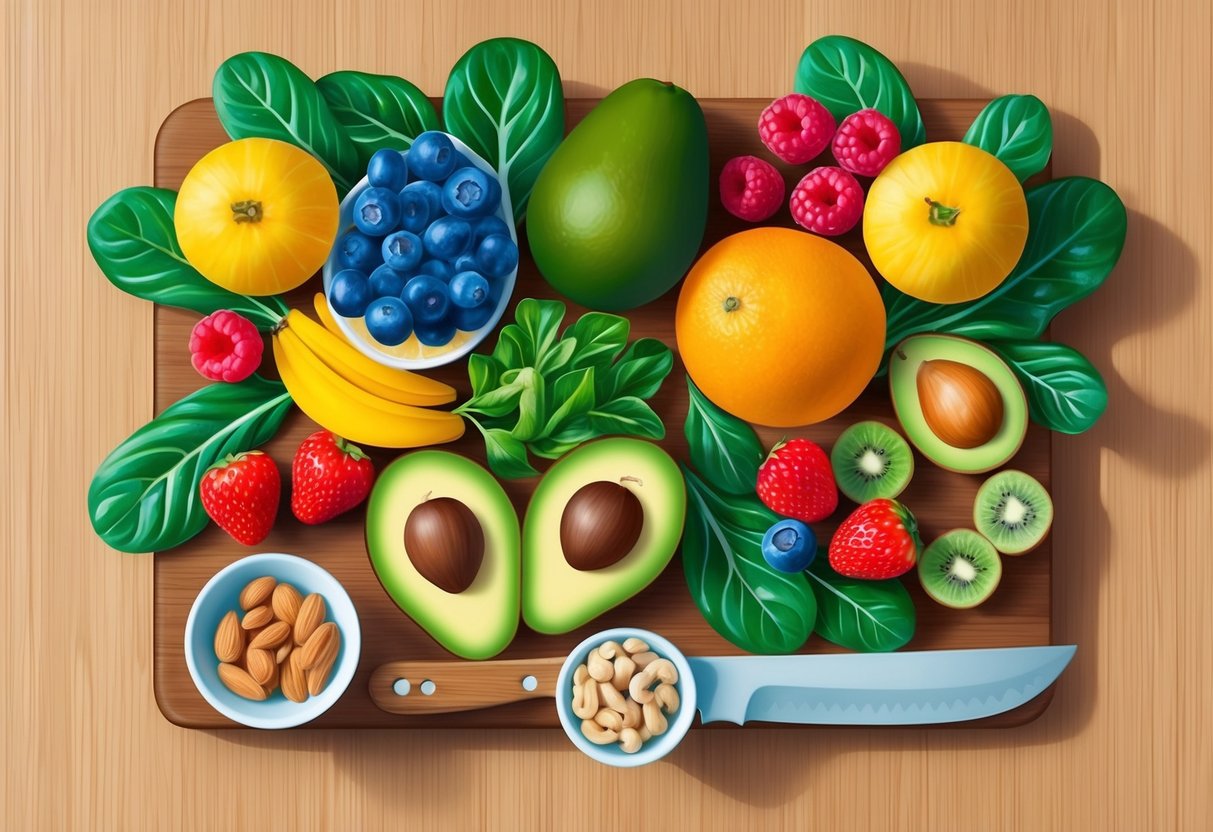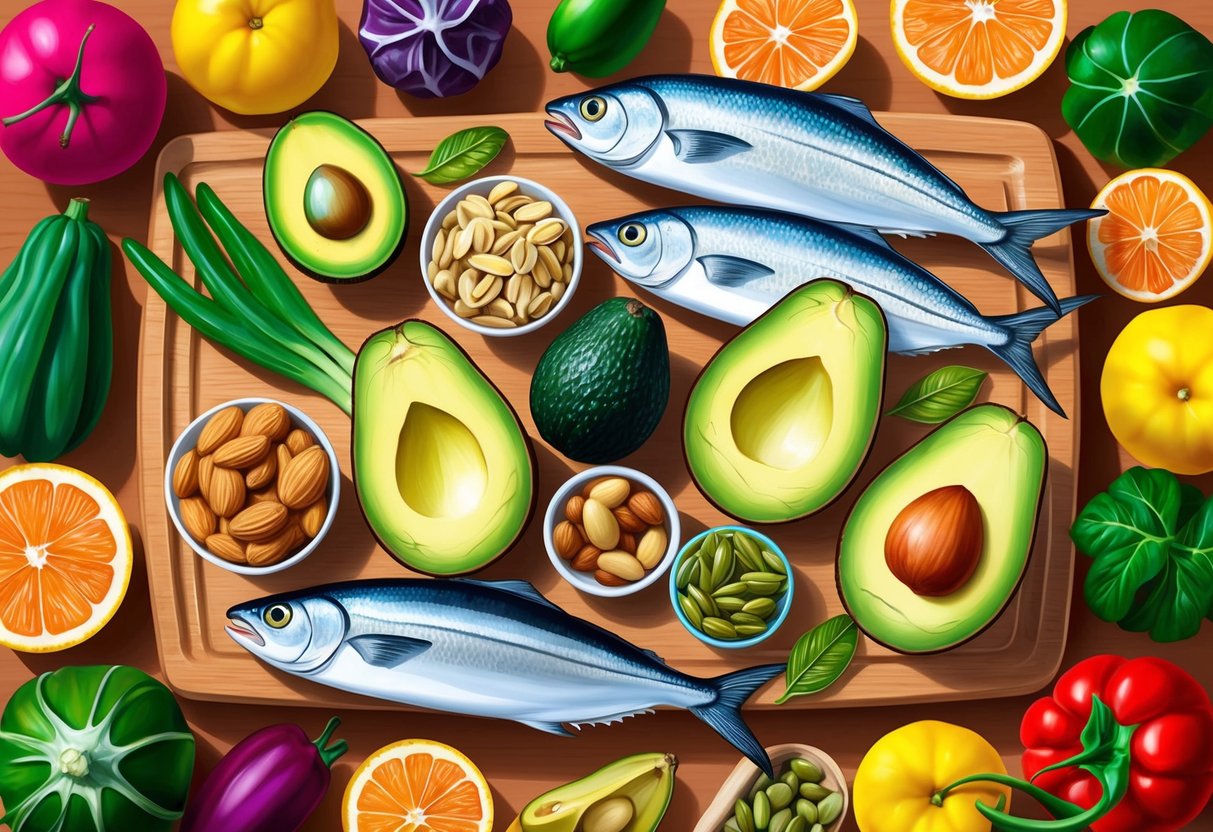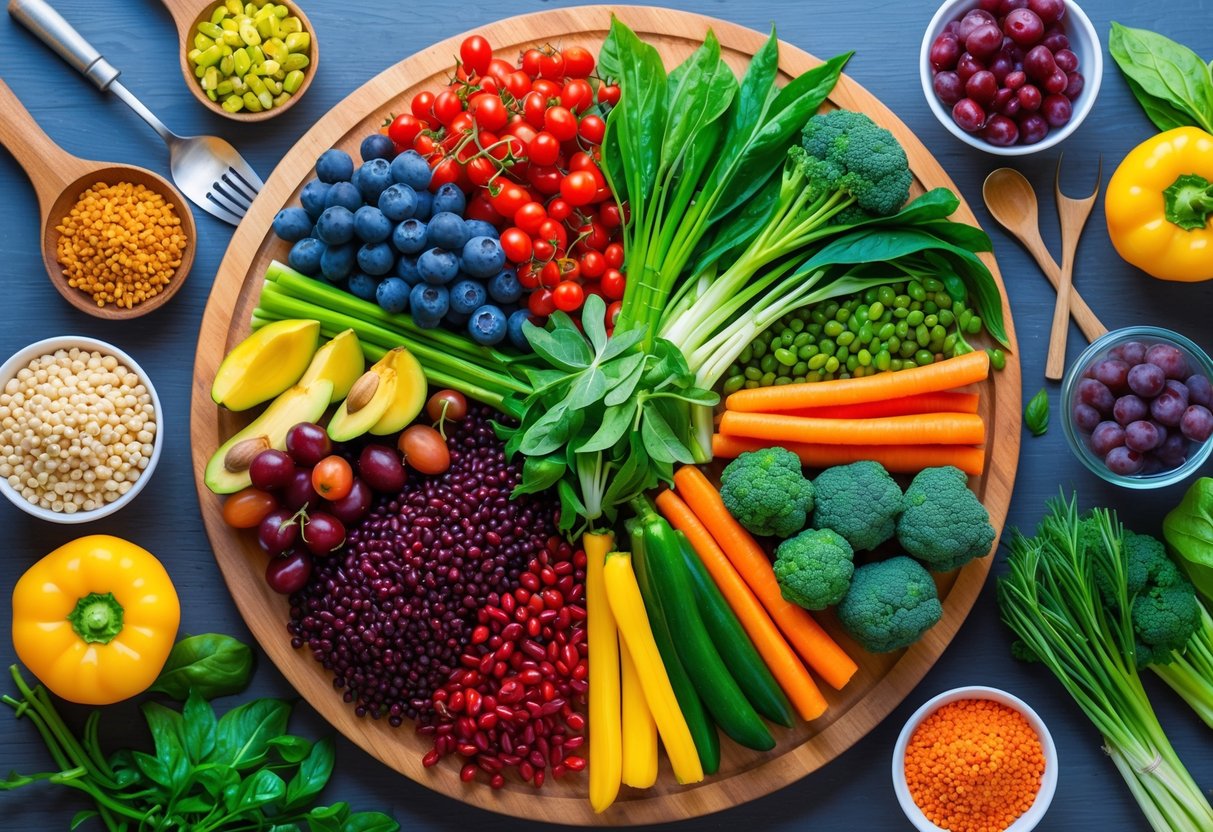
Fruits with Functional Benefits

Many fruits and vegetables contain specific nutrients and plant compounds that can support heart health, blood pressure, and immune function. Eating a variety of these foods can help provide antioxidants, vitamins, and other bioactive substances that support everyday health needs.
Pomegranate: Antioxidants and Heart Health
Pomegranate seeds and juice are rich in punicalagins and anthocyanins, potent antioxidants linked to reduced inflammation. Studies show that regular consumption of pomegranate may help lower blood pressure and support heart health.
This fruit contains polyphenols that may help maintain arterial flexibility and improve cholesterol profiles. Drinking pomegranate juice delivers vitamin C, potassium, and folate.
It can be enjoyed as a juice, sprinkled over salads, or blended into smoothies. Quick Recipe: Toss fresh pomegranate arils into a spinach and walnut salad with a sprinkle of feta for added flavor and nutrients.
Pomegranate’s dense antioxidant content has made it a focus in research on cardiovascular well-being. Learn more about the nutrition of pomegranates at this Healthline resource.
Cranberries: Urinary Tract Support
Cranberries are best known for their role in helping reduce the risk of urinary tract infections. They contain compounds called proanthocyanidins, which may help prevent certain bacteria from adhering to the urinary tract lining.
These berries provide vitamin C and dietary fiber, both important for immune health and digestion. Fresh cranberries have a tart flavor and can be incorporated into sauces, oatmeal, or fruit salads.
Cranberries also deliver antioxidants that contribute to the overall cellular protection benefits of fruits and vegetables. For nutrition details and more on the benefits of cranberries, visit this Medical News Today guide.
Strawberries: Vitamin C and Flavonoids
Strawberries are a nutrient-dense fruit, providing a significant amount of vitamin C in each serving. Vitamin C supports immune function and acts as an antioxidant, protecting cells from oxidative stress.
Strawberries also contain flavonoids and phenolic compounds, which have been studied for their anti-inflammatory and heart health properties. Research suggests that diets high in flavonoid-rich fruits like strawberries may reduce the risk of some chronic diseases.
Enjoy strawberries fresh, in yogurt, or blended into smoothies. This fruit can also be added to cereals, salads, and desserts for natural sweetness and nutrition.
Find more healthy fruit choices and their benefits at BBC Good Food.
Beets: Nitrates and Blood Pressure
Beets are technically a root vegetable but are often grouped with nutrient-rich fruits and vegetables for their health advantages. They are particularly high in nitrates, natural compounds that the body converts to nitric oxide, which can help relax and widen blood vessels.
Regular consumption of beets has been connected to better blood pressure control in some individuals. Beets also contain antioxidants such as betalains that support liver health and reduce inflammation.
Prep Tip: Roast beets with olive oil, then slice and serve them over arugula with goat cheese for a simple, nutrient-packed salad. Beets provide vitamin C, fiber, folate, and manganese.
Including beets in meals is an easy way to support heart health and add vibrant color to your plate.
Healthy Fats for Heart and Brain Health

Dietary fats can play a critical role in heart health and cognitive function when chosen wisely. Some fats, especially those found in certain oils and fish, are strongly linked to improved cholesterol levels and a reduction in cardiovascular risk.
Olive Oil: Monounsaturated Fats
Extra virgin olive oil is an excellent example of food rich in monounsaturated fats. These fats help support healthy cholesterol levels by lowering LDL (bad) cholesterol and maintaining or increasing HDL (good) cholesterol.
Olive oil has also been associated with reduced triglyceride levels, further helping cardiovascular health. It contains polyphenols, which have antioxidant and anti-inflammatory properties.
Many studies have found that regular consumption of olive oil helps lower markers of inflammation, which is a key factor in chronic heart disease. Incorporating olive oil into meals is simple—use it in salad dressings, drizzle it over vegetables, or swap it for butter in cooking.
For more on how olive oil supports a healthy lifestyle, see the nutritional breakdown and benefits at Heart Foundation.
Fatty Fish: EPA and DHA Sources
Fatty fish like salmon, mackerel, sardines, and tuna are high in omega-3 fatty acids, specifically EPA and DHA. These nutrients are proven to lower blood triglycerides, reduce inflammation, and decrease the risk of arrhythmias.
Regular consumption of fatty fish is also linked to better cognitive function because omega-3 fats are crucial for brain structure and cell signaling. Diets that include fish at least twice a week can help protect against cognitive decline and support memory.
Grilling, broiling, or baking fatty fish preserves its omega-3 content best. For more on the healthiest types of fatty fish and their impact, visit the detailed guide at HealthXchange.sg.
Easy Superfood Recipes

Incorporating superfoods into daily meals can be straightforward with a few simple recipes. These ideas make it easy to maintain healthy eating habits while enjoying a nutrient boost at any meal.
Quick Breakfast Ideas
Breakfast is an ideal time to add superfoods like berries, yogurt, and avocado for a strong nutrition start. One easy option is a smoothie bowl made by blending frozen blueberries, spinach, and Greek yogurt, then topping it with chia seeds and sliced almonds.
This mix offers protein, fiber, and antioxidants. For a savory breakfast, smashed avocado on whole grain toast is a go-to.
Add a poached egg and a sprinkle of sunflower seeds for extra omega-3s and vitamins. Overnight oats with flaxseed, walnuts, and mixed berries make a simple grab-and-go meal.
Try a yogurt parfait using plain yogurt, fresh strawberries, and a scoop of granola for a balanced breakfast. More ideas can be explored in superfood-focused collections of breakfast recipes.
Simple Lunch and Dinner Options
A superfood-powered lunch or dinner can come together quickly with ingredients like lentils, salmon, kale, and tomatoes. Lentil and quinoa salads tossed with chopped spinach, diced avocado, and bell pepper deliver plant-based protein and vital nutrients.
For something warm, try a baked salmon fillet seasoned with garlic and lemon served with a side of roasted Brussels sprouts or broccoli. Stir-fries featuring tofu, kale, and shiitake mushrooms are quick to prepare and high in antioxidants and dietary fiber.
Another idea is to use whole grain wraps filled with grilled chicken, mixed greens, and hummus for a convenient meal. Readers can find more inspiration for superfood meals suited to both lunch and dinner.



